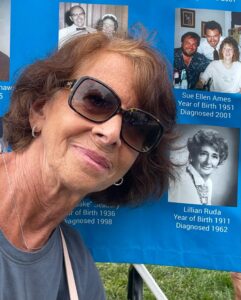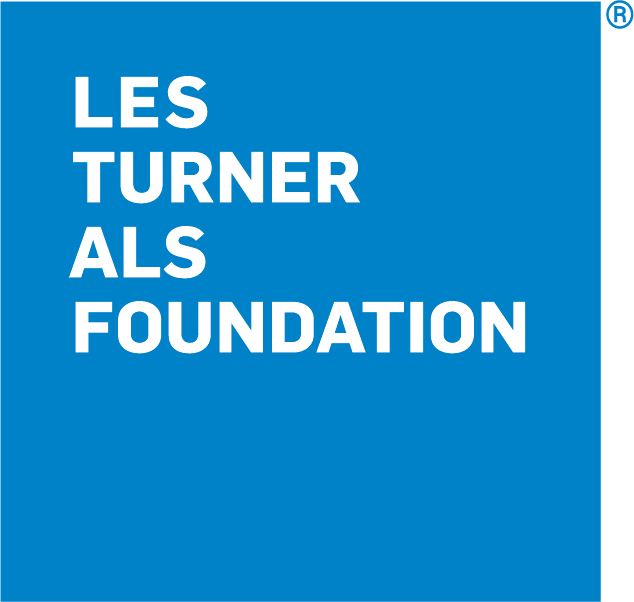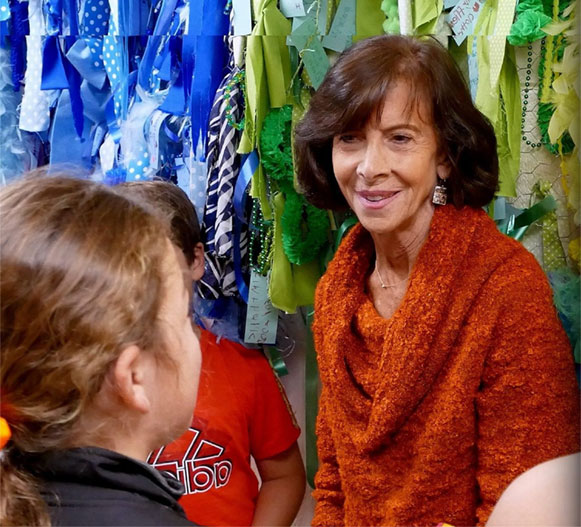More than 50 years later, Anne Lidsky vividly remembers preparing mixed chicken broth and other homemade concoctions for her mother’s feeding tube. She was a teenager when her mother was diagnosed with ALS, and with her father also unwell, Anne assumed the role of primary caregiver whenever she was home from school.
In the 1960s, ALS was not well understood, even within the medical and social service communities. The eventual loss of her mother affected Anne deeply, and she struggled with grief.
“At the time, the cultural norm around the disease was to not talk about it,” Anne says.
As a result, she has dedicated her life to providing support, compassion, and guidance through ALS support groups – and she has made a profound impact on the lives of countless families affected by ALS.
It was the Mammoth Music Mart that first caught her attention, a longtime annual fundraiser where records and videos were sold to support ALS research and services. On account of her background in clinical psychology, Anne approached Wendy Abrams, the first executive director of the Les Turner ALS Foundation, and asked if she could volunteer. Her journey as a support group facilitator began with young adults and adult children of people with ALS.
Anne’s dedication and passion for supporting families facing ALS led her to take on the role of a support group facilitator. What started as a sequence of interviews helping Wendy find a facilitator eventually turned into an opportunity for Anne herself. “She turned to look at me and said, ‘This is silly, you should facilitate these groups,” remembers Anne.
“At first, I felt so heartbroken,” Anne recalls. “I would drive home weeping. I would talk to my brother and sister, and they would say this isn’t good for you, just a trigger for you that reminds you of Mom. I knew, though, that I had something to give.”
In her role as a facilitator, she provides practical advice and guidance, emphasizing the importance of small gestures like touching a loved one’s face and apologizing when emotions run high. Anne’s impact extends beyond the group setting, as she forms deep connections with families affected by ALS. She becomes a part of their lives, offering support, visiting them, and even engaging with the children, sharing invaluable lessons about kindness.
One initiative that Anne introduced is the concept of an ethical will, encouraging individuals to write letters to be read after their passing. She shared this program with a person living with ALS named Gabe Schwartz, who could no longer move his arms or legs, and had minimal speech. Together, they composed letters placed in envelopes for Gabe’s young children, who Anne keeps in touch with today. During this emotional process, both Gabe and Anne experienced a mixture of laughter and tears, finding solace and connection in the face of adversity.

With an innate ability to find moments of joy and self-care for caregivers, Anne injects playfulness, encouragement, and warmth into the support groups. She creates an environment where participants can express their emotions freely, cry, and be honest with one another. Anne ensures that each caregiver’s journey is acknowledged and provides specialized attention to those who may be struggling. She encourages couples to engage in small acts of love and appreciation, like closing their eyes and listening to the sounds of nature together.
Anne understands that every caregiver’s situation is unique, whether it involves caring for a loved one in their 80s or supporting someone who can only communicate through blinking.
Through her unwavering dedication, Anne has witnessed the ebb and flow of hope and frustration that accompanies the ALS journey. She supports both newcomers, who arrive with hope in their hearts, and long-time caregivers, who at times feel burnt out after years of caring for their loved ones. Anne’s ability to guide these individuals, provide them with resources, and connect them with one another fosters a sense of community and resilience.
In moments of loss, Anne continues to stand by the families she has come to know so well. She attends services and offers hugs to the caregivers who have walked alongside their loved ones until the end. These interactions are profound reminders of the impact she has made, and the gratitude expressed by those she has helped.
If you or someone you know has been affected by ALS, the support groups led by Anne Lidsky and our support services team are here for you. And if providing that support is important to you, please make a donation to help bring these much-needed groups to the ALS community. Together, we’ll ensure that every person and family living with ALS has the resources they need to navigate this devastating disease.
.



